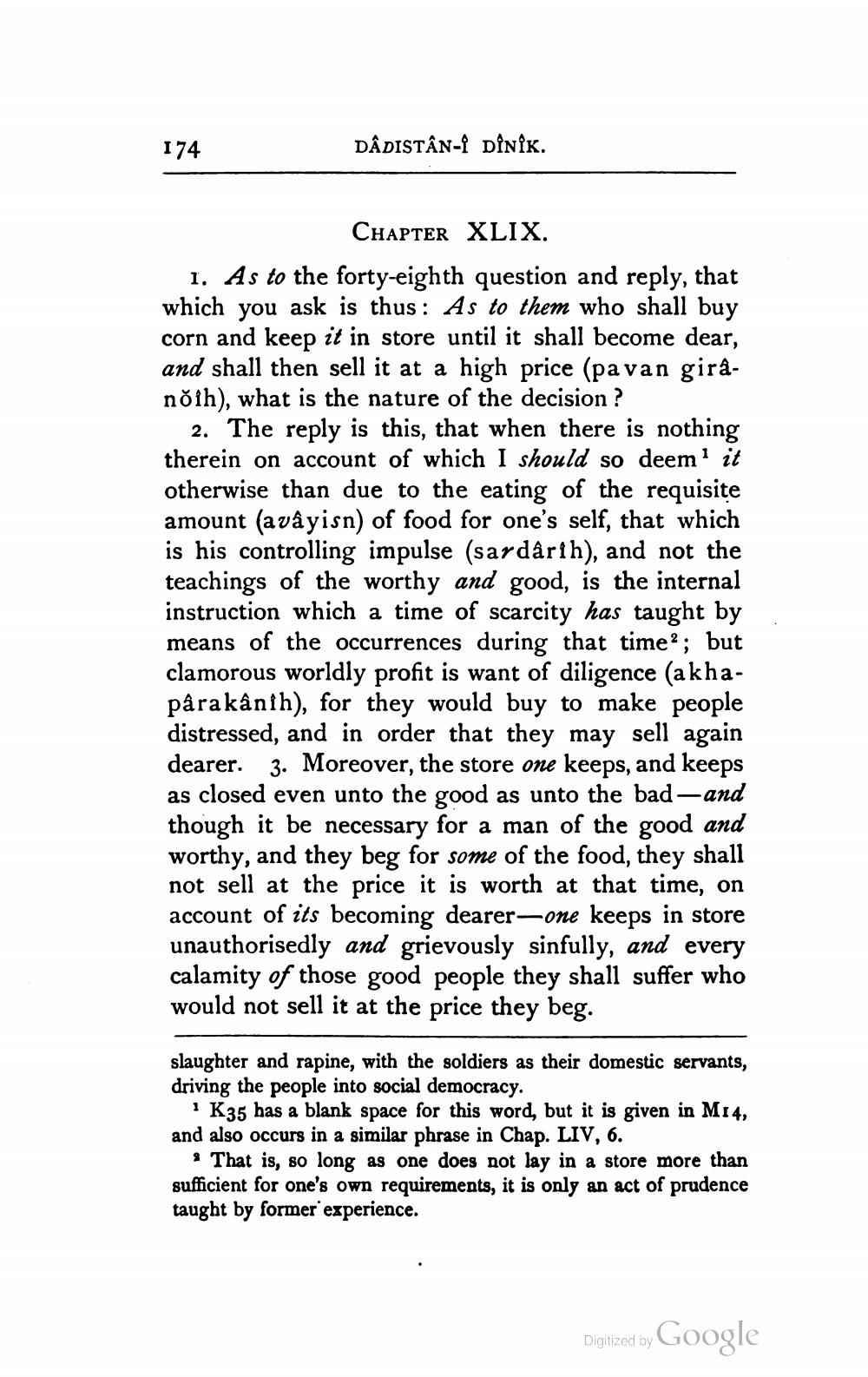________________
174
DÂDISTÂN-I DÎNÍK.
CHAPTER XLIX. 1. As to the forty-eighth question and reply, that which you ask is thus: As to them who shall buy corn and keep it in store until it shall become dear, and shall then sell it at a high price (pavan giranõih), what is the nature of the decision ?
2. The reply is this, that when there is nothing therein on account of which I should so deem' it otherwise than due to the eating of the requisite amount (avâyisn) of food for one's self, that which is his controlling impulse (sardârih), and not the teachings of the worthy and good, is the internal instruction which a time of scarcity has taught by means of the occurrences during that time?; but clamorous worldly profit is want of diligence (akhapara kânih), for they would buy to make people distressed, and in order that they may sell again dearer. 3. Moreover, the store one keeps, and keeps as closed even unto the good as unto the bad-and though it be necessary for a man of the good and worthy, and they beg for some of the food, they shall not sell at the price it is worth at that time, on account of its becoming dearer-one keeps in store unauthorisedly and grievously sinfully, and every calamity of those good people they shall suffer who would not sell it at the price they beg.
slaughter and rapine, with the soldiers as their domestic servants, driving the people into social democracy.
K35 has a blank space for this word, but it is given in M14, and also occurs in a similar phrase in Chap. LIV, 6.
. That is, so long as one does not lay in a store more than sufficient for one's own requirements, it is only an act of prudence taught by former experience.
Digized by Google




